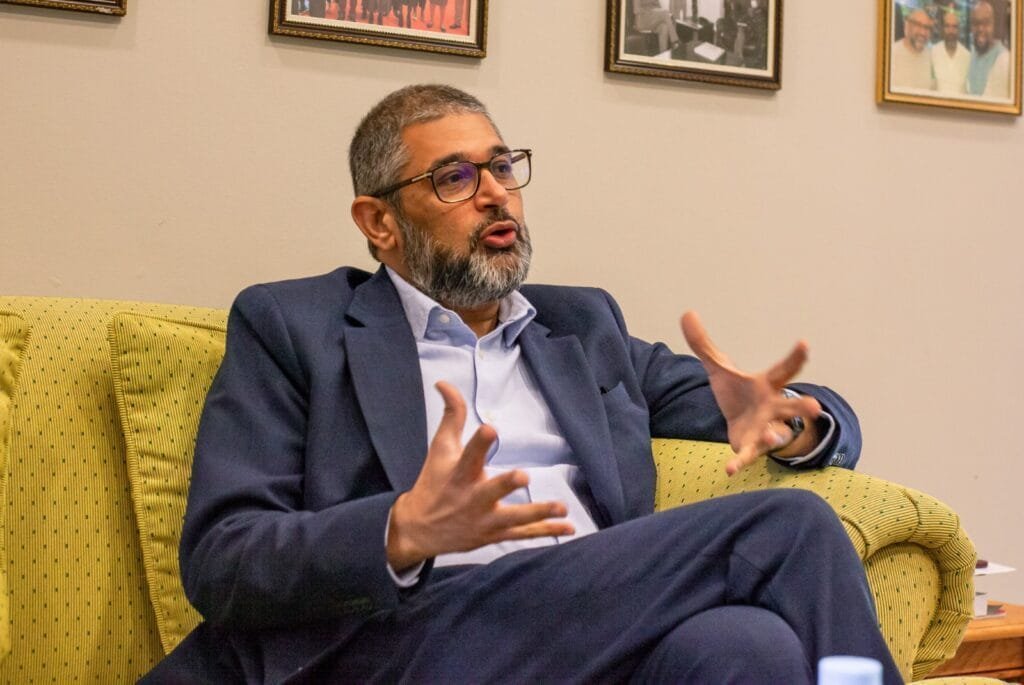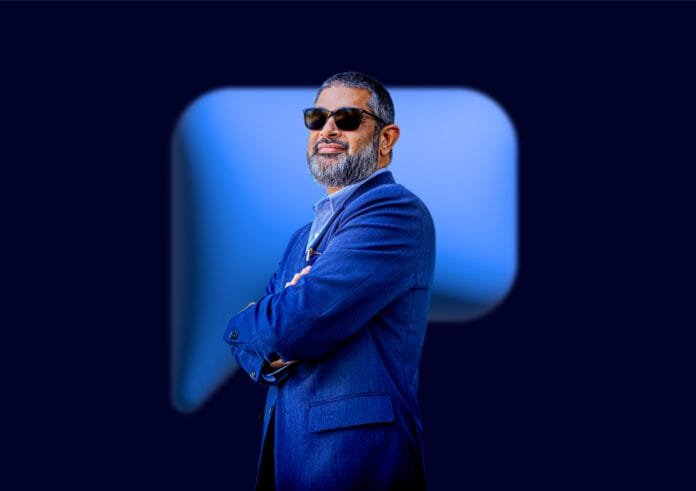Profile Mozambique: Tell us a little about your professional journey, what brought you to the hotel sector in Mozambique and, in particular, to VIP Hotels?
Gulamhussen: My name is Gulamhussen, although I’m better known as Dado. I was born in Beira 41 years ago, studied in Maputo, and completed my higher education in India, always focused on the tourism sector. In Mozambique, the group has been present since 2002, the year the VIP Grande Maputo opened. Twenty-three years later, we currently have four hotel units in the country, totaling around 600 rooms, which makes VIP Hotels one of the largest hotel groups nationally in terms of installed capacity. We also have an ambitious expansion plan aimed at taking our brand to other provinces and cities across the country.
My professional path is closely linked to the history of VIP Hotels, which was founded in Portugal in 1978 during the Civil War, as a result of the migration of many families, including mine. As it is a family business, I chose to study Business Administration and Tourism to continue this project, which I embraced from an early age.”*
PM: What were the main challenges you faced when you took on the leadership of VIP Hotels?
Gh: The challenges have been constant, especially in a market like Mozambique, where everything requires more effort at the outset. Over the past 23 years, VIP Hotels has experienced periods of solid growth, followed by more difficult phases marked by socio-economic and political adversities. Among the main obstacles we faced, I highlight the period of instability in 2011–2012, the impacts of the hidden debts, the COVID-19 pandemic, and more recently, the protests that affected the sector’s normal operations. Faced with this context, it has been essential to cultivate resilience and adaptability to ensure the group continues to deliver quality service and remains competitive in the market.
PM: How do you define VIP Hotels’ growth strategy in Mozambique? Are there plans to expand to other regions such as Beira, Tete, or Nampula?
IG: Currently, VIP Hotels has four units in Mozambique: two in Maputo, including VIP Suites, an apart-hotel located in Machava, and hotels in the cities of Beira and Tete, all built over the past 23 years. Regarding our growth strategy, we have expansion projects planned for new locations like Pemba, Nacala, Nampula, Lichinga, and Quelimane, as well as a unit in the southern region, in Inhambane, focused on the resort segment. We are also considering strengthening our presence in Beira.

However, I must emphasize that the advancement of these investments is directly dependent on the evolution of the country’s political, social, and economic context, as well as the effects of international factors that inevitably impact the domestic market. For this reason, we closely monitor indicators and carry out feasibility analyses to determine the right moment to resume and implement these expansion projects.
PM: How do you balance investment in innovation with maintaining service quality and guest comfort?
Gulamhussen: The tourism industry, and hospitality in particular, is constantly reinventing itself, following trends that increasingly prioritize digital solutions and process automation, such as self check-in, which is already common in many parts of the world.
In the Mozambican context, we recognize that there are legislative, regulatory, and structural limitations that constrain the immediate adoption of these solutions. Even so, we have been working to progressively adapt, introducing improvements that strengthen guest interaction with our services and ensure consistent standards of quality and comfort.
With over two decades of experience in the sector, we believe the future of the national hospitality industry will inevitably involve integrating these new technologies, adapting them to local realities, so we can maintain our commitment to excellent service and position Mozambique as a competitive destination on the international stage.
PM: How do you assess the evolution of business tourism in the country, and what impact have factors like the rise of new digital platforms and the shortage of foreign currency had on the hotel sector’s performance?
Gulamhussen: For many years, business tourism was the driving force behind the hotel sector in Mozambique’s main cities, supported by large infrastructures capable of hosting conferences, meetings, and corporate events.
However, this scenario began to shift following a series of adversities, from the Covid-19 pandemic, which popularized online meeting platforms such as Zoom and Teams, to the emergence of new global trends like Airbnb, local accommodation, and guesthouses, which began to compete directly with large chains.
Despite these challenges, I believe there is room for everyone, as long as there is greater diversification of offerings, proper regulation, and effective oversight of the sector. On the other hand, the shortage of foreign currency today is a cross-cutting problem: it affects airlines, increases ticket prices, and reduces the arrival of tourists and investors.
This domino effect ultimately impacts the entire value chain, hotels, restaurants, transport providers, and tour guides.
PM: In your view, what should be the role of national entrepreneurs in promoting sustainable development and positioning the country as an economic and tourism destination?
Gulamhussen: I actively participate in various sector-related bodies, such as the CTA and the Hotel Association, because I believe it is up to all of us to promote and highlight the potential that Mozambique offers, whether in natural, mineral, and agricultural resources, logistics, infrastructure, or tourism, sectors that carry significant weight in our export potential.
There has been a joint effort from both the government and the private sector to showcase these opportunities to the world, especially through international fairs and conferences. It is a process that requires commitment, planning, and a long-term strategic vision to deliver sustainable results..





